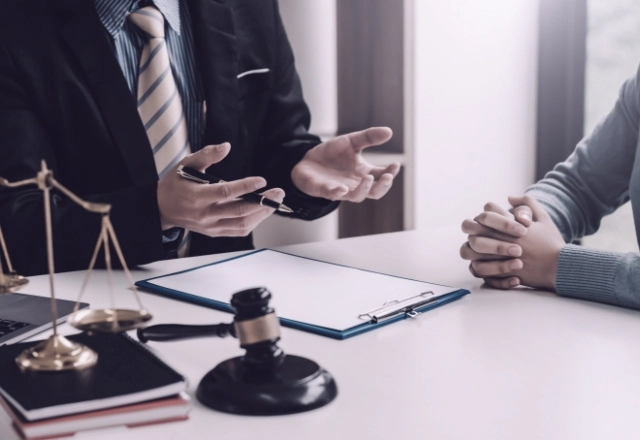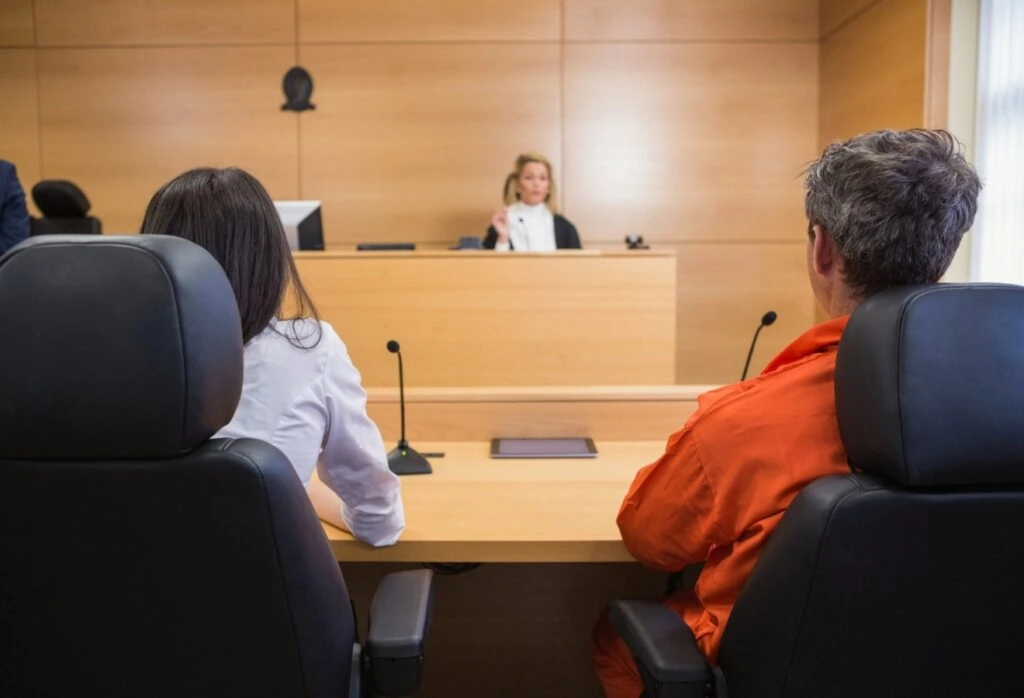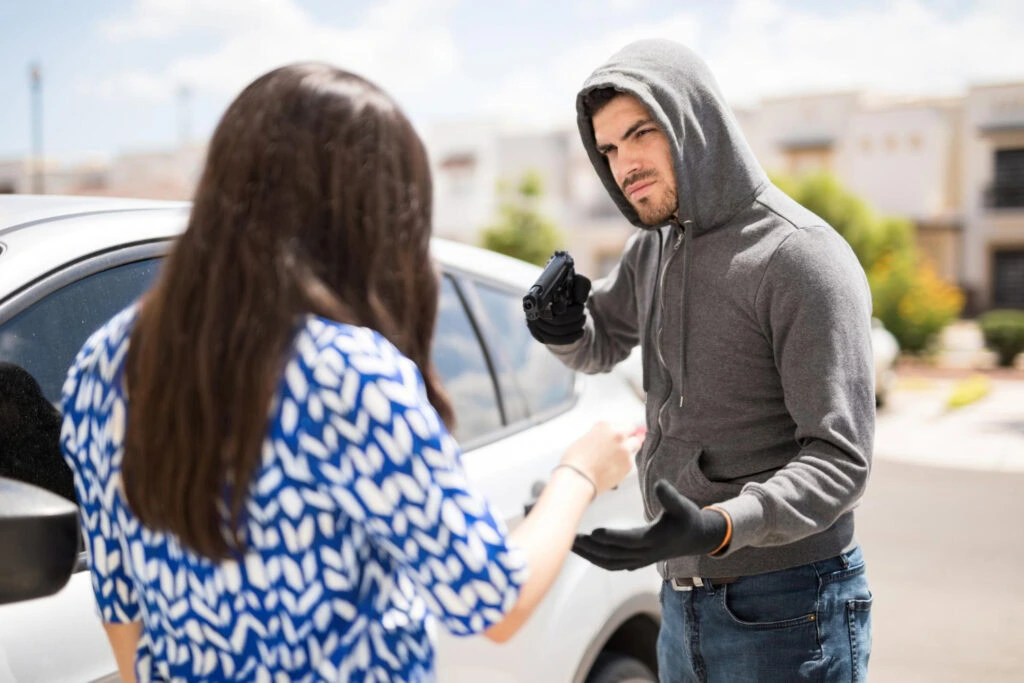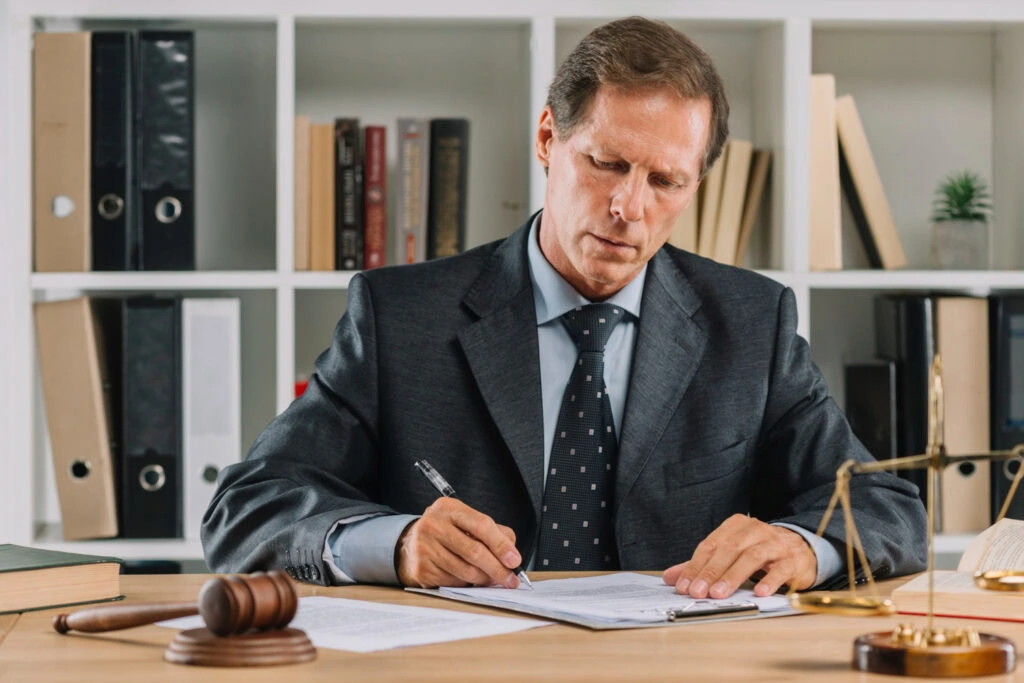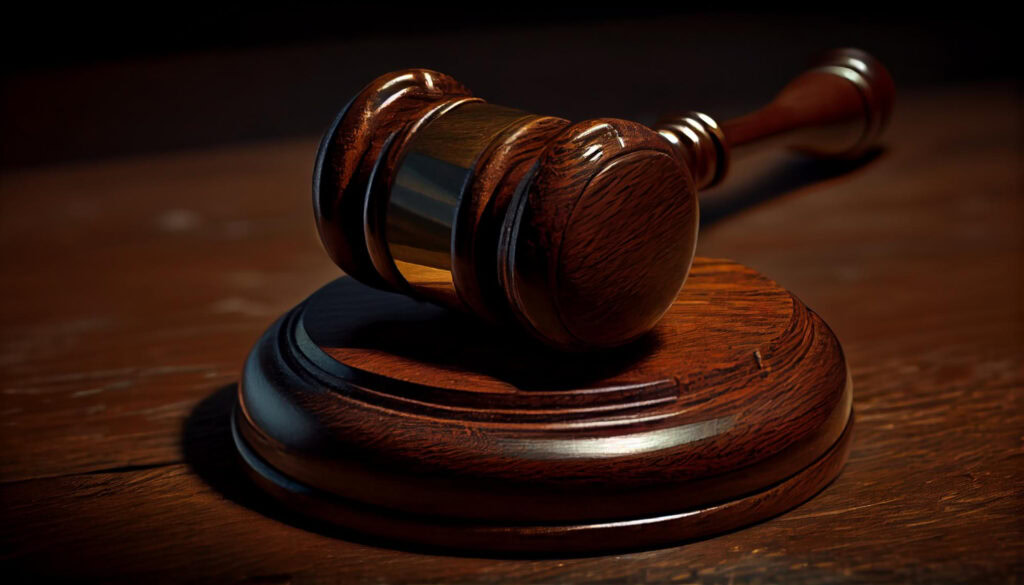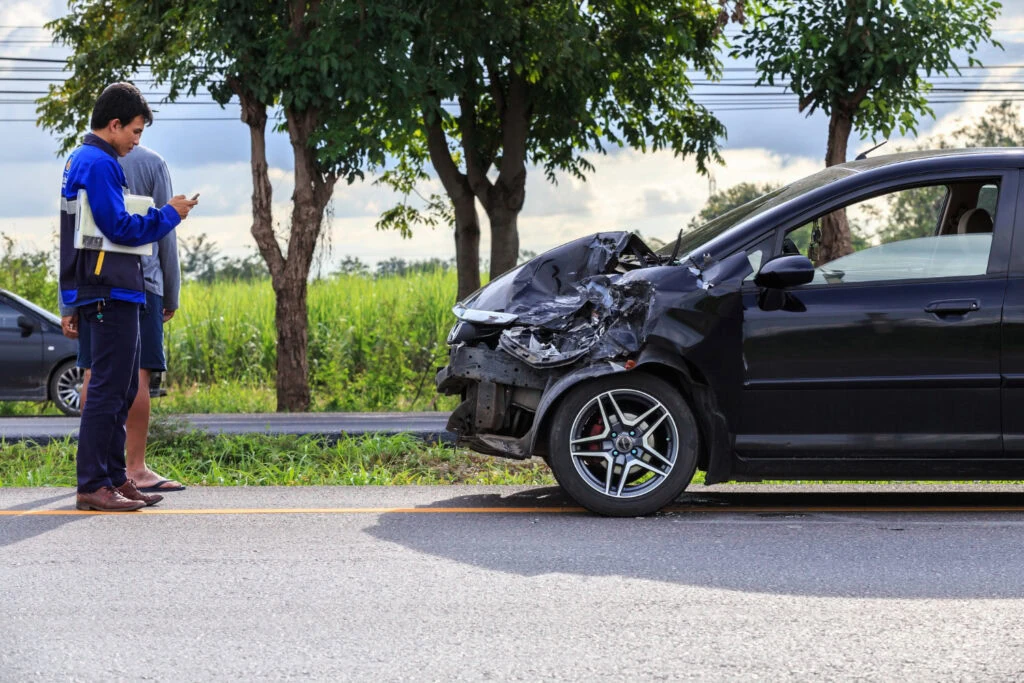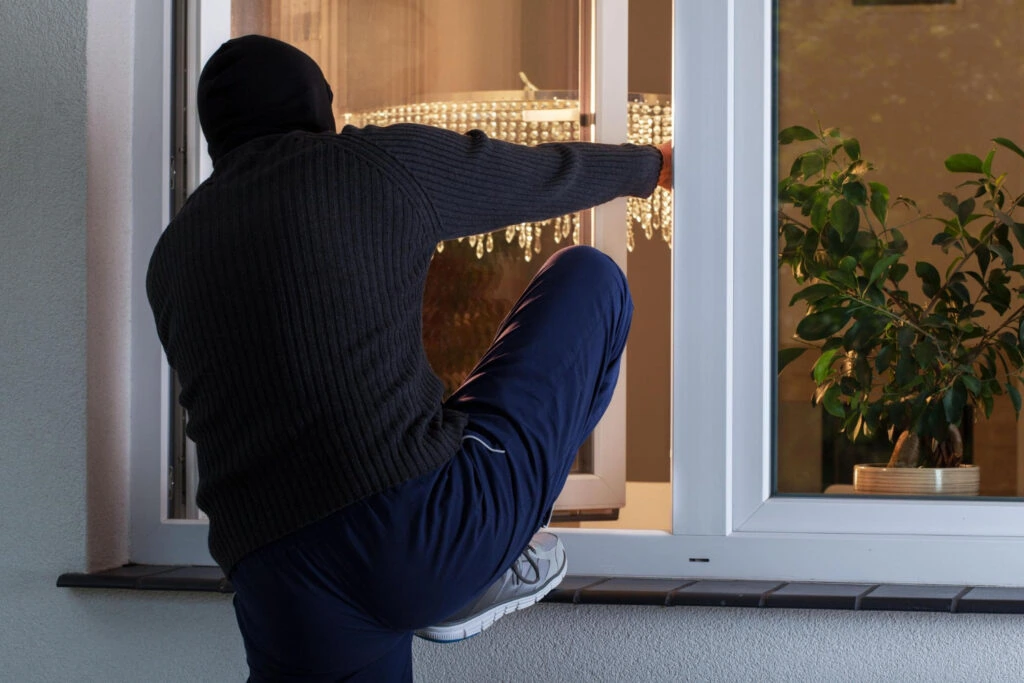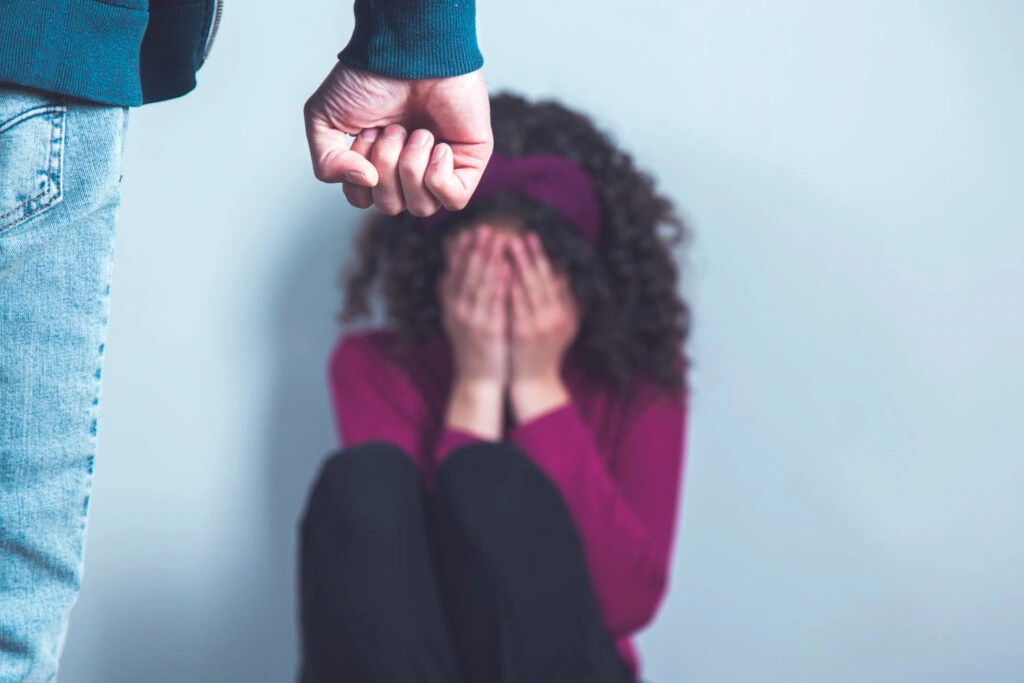Have you ever wondered, “Can someone press charges against me without proof?” It’s a common concern and one that holds a lot of weight in the realm of law enforcement and justice.
In this article, we will delve deep into understanding how charges are pressed and the importance of evidence to validate such allegations.
Ready for a journey through the intricacies of pressing charges? Let’s get started.
Understanding The Concept Of Pressing Charges
Pressing charges involves formally accusing someone of committing a crime and requesting their prosecution, with the decision ultimately resting in the hands of the prosecutor.
Definition Of Pressing Charges
In legal terms, pressing charges involves reporting criminal activity to law enforcement through filing a police report. It signifies the initiation of a formal accusation against an individual suspected of committing a crime.
Contrary to popular belief, victims don’t press charges; instead, they report the incident to authorities, who subsequently decide whether grounds exist for pursuing prosecution. This critical step could potentially lead to the suspect’s arrest, conviction, and possible incarceration.
The concept embodies more than just the victim’s wish for retribution – it sets into motion significant parts of our justice system designed to ensure safety and enforce laws.
Role Of The Prosecutor
In the realm of pressing charges, the prosecutor plays a pivotal role. This government legal representative is responsible for presenting cases in a court of law. Not limited to representing victims, prosecutors act as an advocate for public safety by scrutinizing reported offenses and identifying those that warrant an indictment.
The district attorney or prosecutor examines all evidence pertaining to a suspected criminal case. Using their expertise and discretion, they assess if there’s sufficient proof to justify legal proceedings against an individual accused of committing the crime.
The decision isn’t influenced solely by victim reports or initial complaints filed – it relies on comprehensive analysis rooted in fairness and justice. Prosecutors maintain broad discretionary power in determining whether or not criminal charges should be pressed, making their role fundamentally vital within the criminal justice system.
Difference Between Victim’s Choice And Prosecutor’s Decision
The distinction between a victim’s choice and a prosecutor’s decision is pivotal in comprehending the criminal justice system. Notably, it isn’t the victims who decide to press charges against an alleged offender; this duty falls within the legal jurisdiction of prosecutors.
The prosecutor reviews all evidence gathered during police investigations. In contrast, while victims can influence this process by filing a report or cooperating with law enforcement, they don’t have direct control over whether criminal charges are pursued or not.
Prosecutorial discretion allows these legal professionals to assess facts, consider the law, and respect victims’ rights and societal needs before making their decision – even choosing to move forward with charges without the victim’s consent if deemed necessary for public safety and justice.
Can Charges Be Pressed Without Proof?
Charges cannot be pressed without sufficient evidence linking the suspect to the crime committed.
Importance Of Evidence In Pressing Charges
It is crucial to have solid evidence when accusing someone of committing a crime. Evidence provides the foundation for a strong prosecution case and increases the likelihood of obtaining a conviction.
Prosecutors carefully evaluate the available evidence to determine its strength and credibility before deciding whether to proceed with criminal charges. This evaluation involves assessing witness statements, testimonies, police investigations, and other relevant factors in order to build a compelling case against the accused.
The standard of proof required in criminal cases is high, so having substantial and reliable evidence greatly improves the chances of successful prosecution.
Standard Of Proof Required
When it comes to pressing charges, the standard of proof required is an important factor to consider. In criminal cases, the prosecution carries the burden of proving beyond a reasonable doubt that the accused committed the crime.
This means that they must present enough evidence and arguments to convince a judge or jury that it is highly probable that the defendant is guilty.
The legal standards for proving guilt differ in various jurisdictions, but generally speaking, beyond a reasonable doubt is considered one of the highest standards of proof. It requires more than just suspicion or mere possibility – strong evidence and logical reasoning should support each element of the alleged crime.
While direct evidence can greatly strengthen a case, it’s not always necessary. Circumstantial evidence and witness testimonies can also play crucial roles in establishing guilt beyond a reasonable doubt.
However, pressing charges without sufficient evidence can lead to false accusations and unnecessary strain on police resources.
Circumstances Where Charges Can Be Pressed Without Direct Evidence
In certain circumstances, charges can be pressed without direct evidence in a criminal case. While strong evidence is typically required for prosecutors to proceed with pressing charges, there are instances where indirect or circumstantial evidence can still be sufficient.
This means that even if there isn’t concrete proof of the accused person’s involvement, other factors and pieces of information can be taken into consideration. Prosecutors may consider factors such as witness statements, testimonies, and available evidence when determining whether to pursue charges.
However, it is important to note that pressing charges without direct evidence can present challenges, as the strength of the evidence must be convincing enough for prosecutors to move forward with the case.
Factors Influencing The Decision To Press Charges
Factors that can influence the decision to press charges include the prosecutor’s discretion, witness statements and testimonies, and available evidence. To fully understand how these factors play a role in pressing charges, read more about it here.
Prosecutor’s Discretion
Prosecutors play an important role in the criminal justice system, exercising their discretion when deciding whether to press charges against someone and which charges to file. This discretion allows prosecutors to consider various factors that influence the outcome of a case.
They take into account the strength of the evidence, the likelihood of conviction, the victim’s interest in prosecution, and the complexity and cost of the case. This decision-making process enables them to make informed choices that uphold justice while considering practical considerations.
By carefully weighing these factors, prosecutors ensure that they only pursue charges when there is reasonable belief in their merit based on probable cause. Their discretionary power profoundly impacts criminal cases’ outcomes more than any other actors within the American legal system.
Witness Statements And Testimonies
Witness statements and testimonies are crucial pieces of evidence when it comes to pressing charges against someone. In a criminal case, witnesses can provide firsthand accounts of what they saw or heard, helping investigators piece together the events surrounding a crime.
Their credibility is essential in determining the guilt or innocence of a defendant. Prosecutors heavily rely on witness statements and testimonies to build a strong case against the accused.
When witnesses come forward with truthful and reliable information, it contributes significantly to an effective investigative process. Witness testimony can shed light on important details that may have been overlooked or unknown to authorities.
These statements help establish a clear picture of what happened and can be instrumental in securing convictions.
In the federal criminal justice system, prosecutors bear the burden of proving guilt beyond a reasonable doubt during trial proceedings. Witnesses play an integral role in supporting or challenging the prosecution’s case by providing their accounts under oath.
Therefore, witness statements and testimonies are valuable and necessary for successful prosecutions in cases where charges are pressed without direct evidence.
By presenting accurate and credible information through their statements and testimonies, witnesses ensure that justice is served by assisting law enforcement agencies in holding accountable those who commit crimes.
Available Evidence
In the process of pressing charges, the availability and strength of evidence play a crucial role. Prosecutors rely on evidence to build a case against the accused and prove their guilt beyond a reasonable doubt.
This evidence can come in various forms, such as witness statements, physical or forensic evidence, video footage, or documents. The more convincing and substantial the evidence is, the higher the likelihood that charges will be pressed.
In some circumstances where direct evidence may be lacking, circumstantial or indirect evidence can still be considered valid for pressing charges. Ultimately, prosecutors assess all available evidence before making a decision on whether to proceed with criminal charges.
The Importance Of Legal Representation
Legal representation is crucial when it comes to navigating the complex criminal justice system. Having a skilled criminal defense attorney by your side can safeguard your legal rights and ensure a fair trial.
In the process of pressing charges, having legal representation can make all the difference.
Criminal cases involve intricate procedures and nuanced laws that are not easily understood by the average person. A competent defense attorney possesses knowledge of the legal system, including prosecution strategies, evidence examination, and courtroom tactics.
They will fiercely advocate for you, protecting your interests every step of the way.
Moreover, a skilled attorney can help assess the strength of your case and advise you on whether pursuing charges is in your best interest. They will thoroughly investigate witness statements and testimonies while examining available evidence to build a solid defense strategy if needed.
The importance of legal representation cannot be overstated in matters where someone presses charges without concrete proof or in situations where factors may influence the decision to press charges.
Securing expert assistance from an experienced criminal defense lawyer greatly increases your chances of achieving a favorable outcome and preserving your rights throughout this challenging process.
Conclusion
To sum up, pressing charges without proof is not a simple matter. Sometimes, a criminal case can go ahead without direct evidence, but having strong evidence makes it more likely to get a conviction.
However, it is not up to the individual to decide whether to press charges or not. That is the prosecutor’s job, based on the evidence they have. Having a lawyer on your side can help you get justice in this process. Also, don’t forget to report crimes as soon as possible and cooperate with the police. These are important steps to press charges successfully.
If you need help with any of these steps, contact David L. Faulkner for assistance. He is an expert in criminal law and can guide you through the process.


